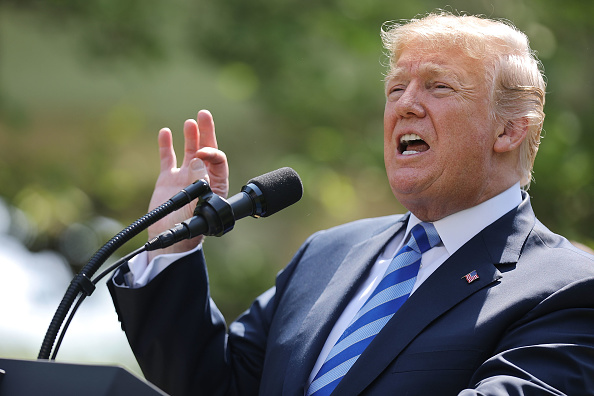The new presidential administration will impact every aspect of the healthcare industry. But we already know what to expect from Trump's second term.
With President Trump's re-election, we can look to past policy history to understand what the Trump administration means for the healthcare industry. This precedent, and the leadership team selections that have already been revealed, point to significant disruption in the current healthcare environment, regardless of political affiliation.
This change will be felt through reduced regulatory challenges, reimbursement adjustments for providers, and future investments in the industry. At the same time, we expect that private equity (PE) and venture capital (VC) investments will become active in the healthcare field.
Regulatory impact on M&A
Based on history and campaign promises, the new administration is expected to continue to focus on federal deregulation. This lowers barriers to entry, lowers compliance costs, and makes it easier for PE firms to invest in healthcare companies. This could lead to an increase in mergers and acquisitions (M&A) as companies seek to take advantage of a more favorable regulatory environment.
This situation could further polarize political responses to private market activities in the healthcare industry, especially as several states work to enact their own legislation restricting PE investments in healthcare provider companies. There is. Some state lawmakers plan to ban certain investments or require investment companies to at least notify state regulators for approval. These state-based proposals are collectively referred to as “mini-HSR laws” based on the requirements of the federal Hart-Scott-Rodino (HSR) Act.
Consolidation through mergers and acquisitions should reduce operating costs and increase value, but these benefits may come at the expense of higher prices for end users due to reduced competition. Reducing oversight could lead to cost-cutting measures that could compromise health care. Critics argue that a focus on profitability can overshadow a focus on patient outcomes and negatively impact the quality, equity, and inclusion of health care. The balance between profitability and patient care will be a key factor in determining the overall impact of these investments on the health system.
investment in the industry
Private equity and venture capital are no strangers to the healthcare sector. PE and VC players are seeking the promise of high returns through provider-type consolidation that is often perceived as “fractured.” In healthcare, sub-niche providers are those that are small, not yet part of a significant system, and struggle to remain competitive with larger competitors.
Over the past few years, investment in the healthcare industry has slowed, due in part to rising costs of growth capital. The Trump administration's discussion of lower corporate tax rates and favorable trade policies could make health care investments more profitable and attract more capital to the sector.
The potential for new capital to enter the market will be a welcome change for some PE firms currently investing in healthcare providers. Rising costs of capital and investment delays are forcing some PE firms to continue investing for longer periods of time, especially in physician practices. Under the second Trump administration, we expect PE firms to take advantage of the new capital coming into the market to strengthen deals in the physician practice space.
Market impact for providers and insurers
PE firms often inject much-needed capital into healthcare organizations, allowing them to expand, invest in better AI-enabled technology, and improve operational efficiency. This results in better patient care, more robust healthcare infrastructure, and higher profitability. However, a focus on profitability may also prioritize profitable services over essential but less profitable services.
The administration's stance on health care reform, particularly the Affordable Care Act (ACA), deserves close attention. The former Trump administration vowed to repeal the ACA. While they may not be a top priority for the new administration, changes to the ACA could impact insurance markets, patient coverage, and patient costs. Without further extensions to enhanced subsidies, the Congressional Budget Office (CBO) estimates that the number of ACA enrollees and related enrollees would decline by 3.8 million.
Conversely, a potential goal of the new administration would be to improve Medicare reimbursement rates. After the election results were known, insurance companies that had been focused on the Medicare market, such as United Health Group and Humana, saw their stock prices soar on expectations of higher interest rates. Rising Medicare rates will also impact Medicare Advantage (MA) insurers.
The MA rate increase would reverse the trend of insurers completely discontinuing coverage in certain areas and plans, and some insurers not agreeing to MA contracts. Higher interest rates will benefit PE investments, especially in the community-based provider market.
Overall impact on the healthcare industry
Greater PE investment will likely lead to greater consolidation among certain healthcare providers and will likely lower regulatory hurdles for dealmakers in the coming years. This could lead to the creation of larger medical conglomerates. Better control over these consolidated companies is another reason for increased PE investment in the technology and technology-enabled AI space.
The focus on increasing profitability leads PE firms to focus on more profitable markets. Unless we are careful, health deserts may expand and disparities in access to health care providers may widen. Additionally, underserved populations may have fewer choices, which may reduce access to health care and health care outcomes.
Overall, the impact of private equity investments in healthcare under the new Trump administration is multifaceted. Deregulation and business-friendly policies may stimulate investment and foster innovation, but there are significant concerns about the potential negative impact on quality and access to healthcare. Policymakers, health care providers, and private equity firms must work together to ensure the benefits of increased investment are realized without compromising quality and accessibility of care.
Photo by Chip Somodevilla/Getty Images

Ron Present is a partner in Armanino's Growth Office. He is an expert in the healthcare industry with over 35 years of experience. He has in-depth knowledge of the operational structures of pre-acute, acute, and post-acute healthcare settings. Ron brings practical experience to clients as an industry executive and consultant. His healthcare expertise includes strategic, financial and operational advisory services. Developing narrow value-based networks. Increase revenue and execute strategy. Reimbursement and process improvement strategies. HIPAA compliant. Feasibility study. merger and acquisition transactions and implementation; and market evaluation. Prior to joining Armanino, Ron was a partner in Brown Smith Wallace's advisory practice and a leader in the healthcare industry group.
This post is published through the MedCity Influencers program. Anyone can share their perspectives on business and innovation in healthcare on MedCity News through MedCity Influencers. Click here to learn how.

